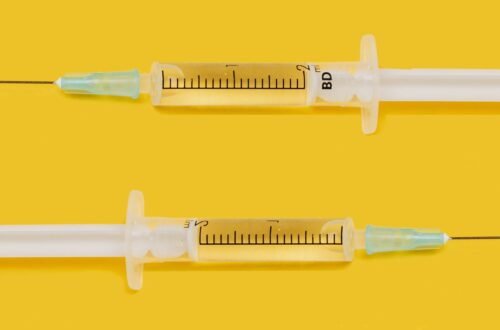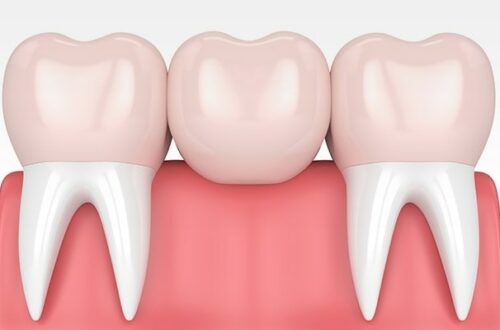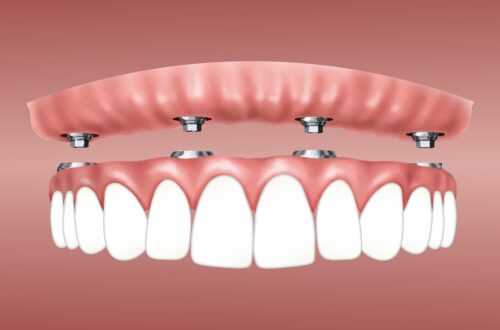
Unlocking the Secrets of Dental Prostheses: A Comprehensive Guide
Have you ever had a missing tooth or several teeth, making it difficult to eat or smile? If so, dental prostheses can help you regain your confidence and improve your oral health. In this comprehensive guide, we will explain everything you need to know about dental prostheses, from the different types available to the process of getting them and the aftercare involved.
Jesteśmy siecią zrzeszającą w sobie różnego rodzaju kliniki. Prestigeclinic powstało po to, abyś w jednym miejscu mógł znaleźć wszystko, czego potrzebujesz w zakresie zdrowia, a także chirurgii estetycznej!

Skontaktuj się z nami, abyśmy mogli porozmawiać o Twoich potrzebach i wspólnie dobrać właściwe rozwiązanie. Naszym priorytetem jest komfort, zdrowie i bezpieczeństwo pacjentów.
Co nas wyróżnia?
Przede wszystkim fakt, że skupiamy się zarówno na zdrowiu, jak i estetycznym wyglądzie. Zastanawiasz się gdzie wykonać szczepienia zgodnie z Narodowym Programem Szczepień Ochronnych? Planujesz podróż do egzotycznego kraju i potrzebujesz porady w zakresie medycyny podróży? Nie jesteś zadowolony z wyglądu konkretnej partii Twojego ciała? A może trudno Ci pogodzić się ze stanem Twojej skóry i chcesz znacząco na nią wpłynąć poprzez zabiegi? Niezależnie od tego, z czego wynikają Twoje potrzeby – jesteśmy w stanie im sprostać.
Pragniemy również propagować twierdzenie, że zabiegi medycyny estetycznej w dzisiejszych czasach są powszechnymi metodami upiększania i leczenia. Co istotne – mogą po nie sięgać zarówno mężczyźni, jak i kobiety.
Zrób wszystko, aby czuć się ze sobą jak najlepiej! Przecież o to tutaj chodzi, prawda? Jeśli nie możesz czegoś zaakceptować w swoim wyglądzie bądź stanie zdrowia, to może pora to zmienić? Wszelkie niedoskonałości można poprawić – efektywnie, szybko, a przede wszystkim BEZPIECZNIE!
REZULTAT?
Świetne samopoczucie i nastrój, ponieważ możesz czuć się doskonale w swoim ciele!
Nasze priorytety
Stawiamy przede wszystkim na komfort pacjentów, nie zapominając przy tym o bezpieczeństwie wykonywania wszelkich działań. Spoglądamy na każdego jednostkowo, doskonale wiedząc, jak ważna jest odpowiedź na indywidualne potrzeby. Kliniki wykorzystują sprawdzone, wciąż uaktualniane techniki medyczne.
Types of Dental Prostheses
Dental prostheses come in different forms, depending on the number of teeth missing and the location in the mouth. The most common types of dental prostheses are dentures and implants, but there are also bridges and partial dentures.
Dentures are removable prostheses that replace all of the teeth in the upper or lower jaw or both. They can be made of acrylic or porcelain and can be full or partial. Full dentures are used when all the teeth are missing, while partial dentures are used when some natural teeth remain. Dentures are a cost-effective option for replacing missing teeth, but they require regular maintenance and may need to be replaced over time.
Implants, on the other hand, are fixed prostheses that replace a missing tooth or several teeth. They are made of titanium and are surgically placed into the jawbone, where they fuse with the bone over time. Once the implant has integrated with the bone, a crown or bridge is attached to it, creating a natural-looking tooth or teeth. Implants are a more expensive option but offer a permanent solution to missing teeth that feels and functions like natural teeth.
Bridges are prostheses that are used to replace one or more missing teeth by attaching to the remaining natural teeth. They are made of porcelain or metal and are cemented in place, creating a bridge-like structure that fills the gap left by the missing teeth. Bridges are a more affordable option than implants but may require the removal of some healthy tooth structure to support them.
Partial dentures are removable prostheses that replace one or more missing teeth and are attached to the remaining natural teeth using metal or plastic clasps. They are a cost-effective option for replacing missing teeth but may affect speech and chewing and require regular maintenance.
Benefits of Dental Prostheses
Dental prostheses offer many benefits, including improved oral health, better speech and chewing, and increased self-confidence. By replacing missing teeth, dental prostheses can prevent the remaining natural teeth from shifting and causing bite problems, as well as reduce the risk of tooth decay and gum disease. They can also improve speech and chewing by providing a stable base for the tongue and restoring the ability to bite and chew properly. Finally, dental prostheses can boost self-confidence by restoring a natural-looking smile and improving overall appearance.
The Process of Getting Dental Prostheses
The process of getting dental prostheses involves several steps, starting with an initial consultation with a dentist or prosthodontist. During the consultation, the dentist will examine your mouth and discuss your options for replacing missing teeth, taking into account your budget and lifestyle.
Once you have decided on the type of prosthesis you want, the dentist will take impressions of your mouth and create a model of your teeth. This model will be used to create a custom-made prosthesis that fits your mouth perfectly.
If you are getting dentures, you will need to attend several appointments to try on the prostheses and make sure they fit comfortably. The dentist may need to make adjustments to ensure a proper fit, and you may need to wear temporary dentures while the permanent ones are being made.
If you are getting implants, the process is more extensive and involves a surgical procedure to place the implant into the jawbone. After the implant has been placed, you will need to wait several months for it to fuse with the bone before the final restoration can be attached.
Dental Prostheses Aftercare
After getting dental prostheses, it is important to take care of them properly to ensure they last as long as possible. Dentures should be cleaned daily using a soft-bristled brush and a non-abrasive denture cleaner. Implants and bridges should be brushed and flossed daily, just like natural teeth, and regular dental check-ups are essential to ensure they remain in good condition.
It is also important to avoid eating hard or sticky foods that can damage the prostheses, as well as smoking, which can increase the risk of implant failure. Finally, it is important to be patient during the adjustment period, as it may take some time to get used to the feel of the prostheses in your mouth.
Common Misconceptions About Dental Prostheses
There are many misconceptions about dental prostheses that can make people hesitant to get them. One common misconception is that they are uncomfortable and difficult to wear. While it may take some time to get used to the feel of dentures or implants in your mouth, they should not be painful or uncomfortable.
Another misconception is that dental prostheses are only for the elderly or those with severe dental problems. In reality, dental prostheses can be used to replace one or more missing teeth at any age and can be a cosmetic or functional solution.
Finally, some people believe that dental prostheses require extensive maintenance and care. While it is true that they require regular cleaning and check-ups, they are not difficult to care for and can last for many years with proper maintenance.
Cost of Dental Prostheses
The cost of dental prostheses can vary widely depending on the type of prosthesis and the extent of the treatment needed. Dentures are generally the most affordable option, with a full set costing between 5,000. Implants are the most expensive option, with a single implant costing between 6,000. Bridges and partial dentures are a mid-range option, with a bridge costing between 1,200 per tooth and a partial denture costing between 5,000.
Choosing the Right Dental Prostheses for You
Choosing the right dental prosthesis depends on several factors, including the number of teeth missing, the location of the missing teeth, and your budget. If you are missing all of your teeth, dentures may be the best option, while implants may be a better choice for a single missing tooth. Bridges and partial dentures are suitable for those with one or more missing teeth, depending on the location of the missing teeth and the condition of the remaining natural teeth.
It is important to discuss your options with a dentist or prosthodontist and consider the benefits and drawbacks of each type of prosthesis before making a decision.
Alternatives to Dental Prostheses
If dental prostheses are not the right option for you, there are several alternatives available. One option is orthodontic treatment, which can be used to close gaps between teeth or shift teeth into the correct position. Another option is dental bonding, which involves applying a resin material to the surface of the teeth to improve their appearance. Veneers are a similar option that involves placing a thin shell of porcelain over the surface of the teeth. Finally, dental implants can be used to replace missing teeth, but they are more expensive and require surgery.
Conclusion
Dental prostheses are a valuable solution for those with missing teeth, offering many benefits for oral health and self-confidence. By understanding the different types of dental prostheses available, the process of getting them, and the aftercare involved, you can make an informed decision about whether they are right for you. Remember to discuss your options with a dentist or prosthodontist and take care of your prostheses properly to ensure they last as long as possible.



